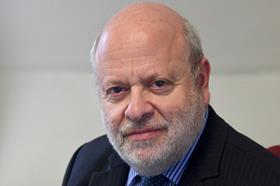Several current or recent events combine to reach the conclusion of this article, which I declare at the outset: thank goodness for immigration lawyers.

There are many solicitors who work in tough areas of the law – mental health and disability, for one - often for very little remuneration. But immigration lawyers have the added challenge of being vilified by the government and some sections of the media and public for the work that they do.
This is doubtless about to get worse when the government will announce its new plans for dealing with small boats crossing the Channel, including possibly reaching for the old warhorse of withdrawing from the European Convention of Human Rights.
So part of this article is a call for support for immigration solicitors in the difficult times that lie ahead. Research shows that at least 60% of all those who made the Channel crossing to the UK in small boats last year will be recognised as refugees through the asylum process. It is solicitors who give them the necessary assistance.
But a second part of this article is a response to duty. This lies on me, and other children of refugees, to speak about the refugee experience and so bring to life those who are often demonised in the debate.
My own responsibility is recalled every year on International Holocaust Memorial Day, which was held just over a week ago. Yes, I am from a refugee family. My parents fled for their lives. My mother’s father was held in Buchenwald after Kristallnacht. My mother’s aunt and uncle died in Theresienstadt. Their son, her cousin, died in Mauthausen at the age of 21. Their daughter is still alive today at the age of 105, but the story of her life on the internet has either been removed or comes with a notice attached, because right-wing agitators use her history to try to prove (falsely) that the head of the World Economic Forum, one of their hate figures, is related to her and so Jewish (he is not).
Countries were closed to my family as they fled. My mother at the age of 19, and on her own, had to get on a train in Africa in 1939 and go north until the train stopped at a country which would take her. Her parents got on a boat in Genoa after the war had started and also had to hunt for countries in South America, to where the boat was headed, until one took them in.
On Kristallnacht in November 1938, their houses and belongings were wrecked. Those who did not leave were killed. They had great struggles to survive in the countries which kindly took them in. (Yet they had advantages over many of today’s refugees through their education and the colour of their skin.)
Although countries were closed, including the UK (which would not take in my mother), I suspect that legal systems had not yet developed the blizzard of rules and regulations that we now have to discourage migration of any sort.
I am currently working on an EU-funded project on EU immigration and asylum law. Reading about the obstacles through which refugees and asylum seekers have to pass to obtain settlement in EU member states – tight deadlines, strict rules about evidence and documentation – shows that we are not alone in our exceedingly complex systems.
As is well-known, the EU as a whole has very large numbers of immigrants and refugees at various points along its borders. But these do not lie only in the usual landing places along the Mediterranean coast and Turkish border.
For instance, Poland is not thought of as a country with many immigrants, but it is estimated that more than 32,000 tried to cross from Belarus at the height of difficulties in 2021-22, and over the last year more than 9 and a half million – 9 and a half million! – refugees have crossed into Poland from Ukraine.
As for problems facing refugees comparable to our own, here are a couple of tiny examples. France does not have enough accommodation for asylum seekers, even for those who are vulnerable. Yet there is special accommodation set aside for Ukrainians, which other refugees cannot access even if there is space available (the reason given is to allow for the ebb and flow of war).
In Greece, legal aid to help guide an asylum seeker through the complicated application process is available only by online application in Greek or English, which raises obstacles for many.
The immigration lawyers who help those who need a safe haven, here or elsewhere, deserve our praise and thanks. My parents were once among those seeking safety, and there are doubtless future generations of solicitors who will be writing about their own parents’ experiences taking place now in 2023.
Jonathan Goldsmith is Law Society Council member for EU & International, chair of the Law Society’s Policy & Regulatory Affairs Committee and a member of its board. All views expressed are personal and are not made in his capacity as a Law Society Council member, nor on behalf of the Law Society































4 Readers' comments